5. David Niven, Separate Tables (15 minutes)
Best Actor
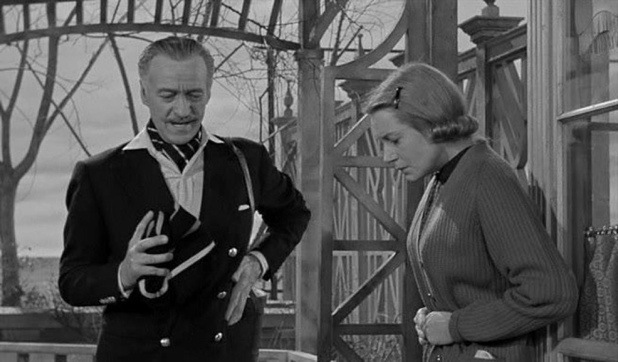
Ensemble pieces are purposely structured to feature multiple characters for short periods of time as the audience follows numerous interconnected storylines. Many films and plays employ this style to great effect, leading to a collection of performances that create a satisfying whole.
Such is the strategy of the 1958 film Separate Tables, two one-act plays that were joined together to create a portrait of the various dramas occurring in the residents’ lives in a long-stay hotel in West Hampshire, England. Among the film’s notable names, including Rita Hayworth and Burt Lancaster, was David Niven, one of England’s most popular actors at the time.
Niven had been enjoying a successful career up to this point, having starred in Around the World In 80 Days and My Man Godfrey in the years leading up to his appearance in Separate Tables. While his character is the engine of the plot in this film (as a retired Major whose public scandal creates upset in the hotel), Niven himself only appears for 15 minutes and 38 seconds, or 15% of its running time.
Even though his appearance in the film was brief, he was nominated for Best Actor at that year’s Academy Awards. Even more surprising is that he won: his competition that year included Paul Newman in Cat on a Hot Tin Roof, Tony Curtis and Sidney Poitier in The Defiant Ones, and Spencer Tracy for The Old Man and The Sea. Historically, Niven barely edges out Anthony Hopkins by 22 seconds for shortest performance in a film to win Best Actor.
4. Ben Johnson, The Last Picture Show (10 minutes)
Best Supporting Actor
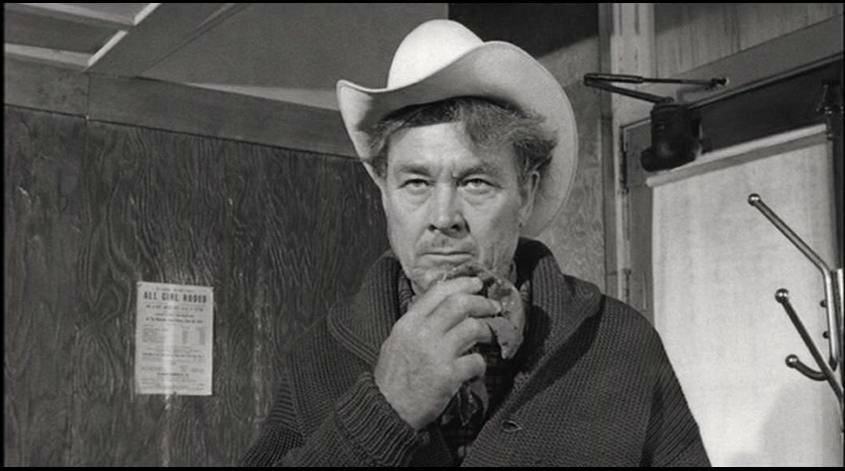
At one time, Peter Bogdanovich was one of the leading lights of the New Hollywood movement: in the early 1970s, Bogdanovich directed three critically lauded films, all of which were nominated–and won–various Academy Awards.
His first feature, 1970’s The Last Picture Show, was nominated for eight Awards, including Best Picture, and won two. Of those nominations, two actors in the film were competing for Best Supporting Actor, and surprisingly the one with the least amount of screen time bested the other, who could have been considered one of the leading roles in the film.
Ben Johnson was a veteran actor known for working in Westerns; he had been a cowboy before transitioning to performing stunt work and then graduated to acting. He had appeared in such classic Westerns as Shane and One-Eyed Jacks and was a regular in John Ford and Sam Peckinpah films.
By the late 1960s, Johnson had an established career when Bogdanovich cast him as in the role of Sam “The Lion,” the proprietor of several establishments in the small town of Anarene, Texas, where the film was set. Although only on-screen for 10 minutes,
Johnson’s character’s function as the representation of traditional values in a quickly dying town imbued the story with a sense of loss that affects the rest of the characters, particularly the two young men and ostensible leads of the film that frequent his establishments. Johnson won Best Supporting Actor against Jeff Bridges, one of those two young men, for his integral role in the plot, despite appearing on-screen for only 8% of the film.
3. Gloria Grahame, The Bad and the Beautiful, (9 minutes)
Best Supporting Actress
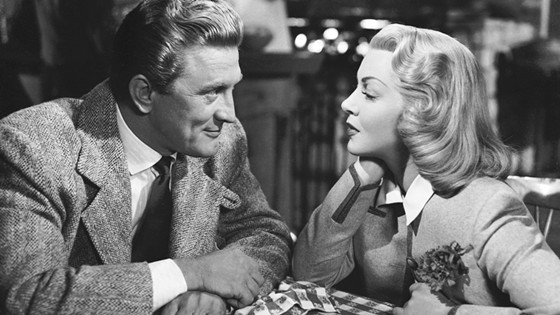
If there’s one subject Hollywood loves to cover, it’s Hollywood; and they love giving awards to these movies about their own business. This year’s numerous La La Land nominations is a good example of the Ouroboros-like nature of Hollywood celebrating itself, but Tinseltown’s self-love goes back decades. Case in point is 1952’s The Bad and the Beautiful, a Hollywood melodrama that received five Academy Award nominations.
A fine–if now forgotten–film in its own right, it tells the story in flashbacks of how three professionals in the business–a director, an actress, and a screenwriter–found both success and tragedy at the hands of a callous producer.
Nominated for six Academy Awards, it won five of them–although not for Best Actor (for which Kirk Douglas was nominated) but for Best Supporting Actress for Gloria Grahame. Astonishingly, her total screen time was a little over 9 minutes (8% of the total film’s runtime), which held the record for shortest performance to win that award for over twenty years.
2. Judi Dench, Shakespeare In Love (8 minutes)
Best Supporting Actress
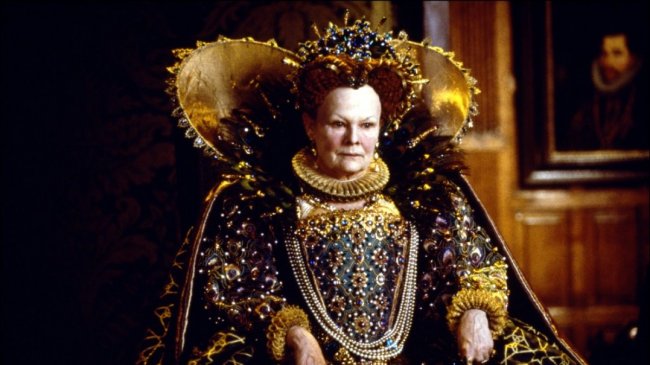
Shakespeare In Love has been a controversial Academy Award-winner since the 71st Awards ceremony ended with it winning Best Picture over Saving Private Ryan and The Thin Red Line. Nominated that year for an astonishing thirteen Awards, it won seven, including Best Actress and Best Director. But in a year when a lead performance of Queen Elizabeth the First lost Best Actress, another actress playing the same historical figure for less than 10 minutes of screentime won Best Supporting Actress.
Judi Dench is a highly regarded actress who has found both critical and commercial success over her career in theater and film; up to present day she has been nominated for 7 Academy Awards, only winning once–for Shakespeare In Love.
This may be due to either the somewhat weaker nominees in the category that year (Kathy Bates’ fierce performance in Primary Colors notwithstanding), the heavy-handed insider campaigning for the film by ogrish Miramax studio head Harvey Weinstein that year, or out of reverence for Dench’s career up to that point.
And while her turn as an older Elizabeth the First is a fine performance, her character only enters at the end of the film to serve as a deus ex machina. With just eight minutes of screentime, which only amounts to 6% of the film’s runtime, this win certainly calls into question just how little support a supporting character needs to contribute to be considered such.
1. Beatrice Straight, Network (5 minutes)
Best Supporting Actress
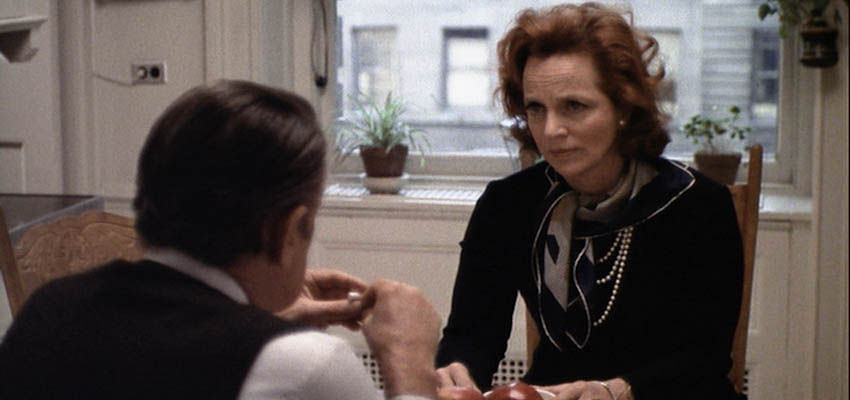
Network is now a classic satire about the influence of media over society and the people (and corporations) that run it. Featuring outstanding performances from all involved–from Peter Finch’s unhinged anchor who becomes an on-air demagogue to Faye Dunaway’s amoral network programmer to Ned Beatty’s fire-and-brimstone corporate mouthpiece, all of the performances were worthy of Oscars that year (and indeed, all aforementioned actors were nominated that year, with Finch and Dunaway winning Best Actor and Actress).
But it was the brief appearance of Beatrice Straight as the scorned wife of wayward news producer Max Schumacher that brought some human feeling to the film and landed her a Best Supporting Actress win that year.
Straight–who had enjoyed a long career as an actress–wasn’t even a main component in the film’s plot; she only appears for 5 minutes 40 seconds total as Schumacher’s wife Louise–the shortest performance to ever win an Oscar.
But in a film where your main characters are a man suffering from an extended mental breakdown, a sociopathic network programmer, and a weary producer, Straight’s electrifying, raw performance when her husband announces his plans to leave her cuts through the impervious cynical tone that Network operates on.
Only appearing for 4% of the film’s running time as a true one-scene wonder, Straight is the brief glimpse of humanity in a film that looks at the depersonalizing effect media has on both the subjects it covers and the people who work in it.
Author Bio: Mike Gray is a writer and academic from the Jersey Shore. His work has been featured on Cracked and Funny or Die, and he maintains a humor recap blog at mikegraymikegray.wordpress.com.